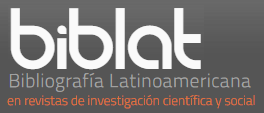Dispersal by birds of Psidium guajava L. (Myrtaceae) in a riparian environment, Parana river basin, Brazil
DOI:
https://doi.org/10.5433/1679-0367.2013v34n2p195Keywords:
Feeding ecology, Frugivory, Guava tree, Biological invasion.Abstract
The dispersion of guava (Psidium guajava L.) in Brazilian natural ecosystems is a growing process and requires studies on its ecological dynamics. Thus, our goals were: a) to identify birds feeding on the fruits of Psidium guajava; b) evaluate the potential success of guava dispersal based in the main local bird foraging tactics. We performed 47 hours of focal observation of birds feeding in P. guajava and we recorded 11 bird species (Aratinga leucophthalma, A. aurea, Amazona aestiva, Melanerpes flavifrons, Pitangus sulphuratus, Cyclarhis gujanensis, Turdus leucomelas, Mimus saturninus, Tangara palmarum, T. sayaca and Euphonia chlorotica). The most representative bird guilds were omnivores (54.5%), followed by frugivores (27.3%) and insectivorous (18.2%). With the exception of parrots which eating behavior normally promote damage to the seed, the other species have behaviors that characterize them as potential guava dispersers. The birds observed explore forest environment and also open areas, which enhances dispersion of guava to many environments, altering the regional structure and composition of vegetation. As birds acting as dispersers of seeds of guava, the colonization of new areas by P. guajava is imminent. This species can dominate areas of environmental regeneration, becoming a damaging species to natural ecosystem processes.
Downloads
Downloads
Published
How to Cite
Issue
Section
License
Copyright (c) 2014 Semina: Ciências Biológicas e da Saúde

This work is licensed under a Creative Commons Attribution-NonCommercial 4.0 International License.
adopts the CC-BY-NC license for its publications, the copyright being held by the author, in cases of republication we recommend that authors indicate first publication in this journal.
This license allows you to copy and redistribute the material in any medium or format, remix, transform and develop the material, as long as it is not for commercial purposes. And due credit must be given to the creator.
The opinions expressed by the authors of the articles are their sole responsibility.
The magazine reserves the right to make normative, orthographic and grammatical changes to the originals in order to maintain the cultured standard of the language and the credibility of the vehicle. However, it will respect the writing style of the authors. Changes, corrections or suggestions of a conceptual nature will be sent to the authors when necessary.
This Journal is licensed with a license Creative Commons Assignment-NonCommercial 4.0 International.

















